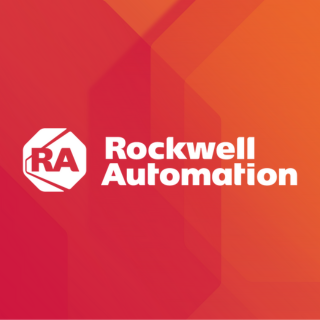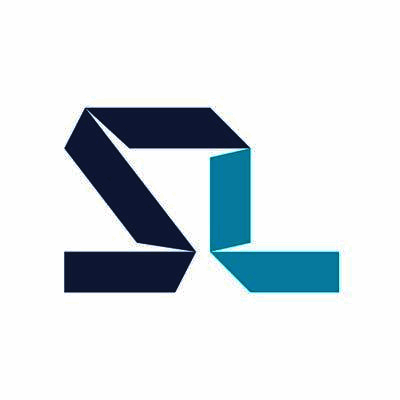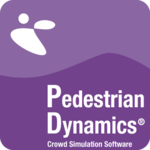Description

Arena Simulation

DMG MORI Virtual Machine
Comprehensive Overview: Arena Simulation vs DMG MORI Virtual Machine
Arena Simulation and DMG MORI Virtual Machine are both advanced tools used in the field of manufacturing and industrial operations but serve distinct purposes and target different aspects of the production process. Let's delve into each of them:
Arena Simulation
a) Primary Functions and Target Markets
- Primary Functions: Arena Simulation is a discrete event simulation software developed by Rockwell Automation. Its primary function is to model, simulate, and analyze complex processes to improve operational efficiency, optimize resources, and assess the impact of potential changes. Users can simulate scenarios such as manufacturing processes, logistics, healthcare operations, and service systems.
- Target Markets: Arena targets industries that require intricate process analysis and optimization, including manufacturing, logistics, supply chain management, healthcare, and any other field where process optimization is crucial.
b) Market Share and User Base
- Arena Simulation is one of the leading tools in the discrete event simulation market. It has been widely adopted across various sectors due to its powerful simulation capabilities and user-friendly interface. However, exact market share statistics can vary depending on the region and industry, as it competes with other simulation software like AnyLogic and FlexSim.
c) Key Differentiating Factors
- User-Friendly Interface: Arena offers a graphical interface that simplifies model building with flowchart-style layouts.
- Integration Capabilities: It can integrate with other analytical tools and databases, enhancing its utility in comprehensive decision-making processes.
- Extensive Documentation and Support: Arena provides a wealth of resources, tutorials, and support that benefit users of all levels.
DMG MORI Virtual Machine
a) Primary Functions and Target Markets
- Primary Functions: The DMG MORI Virtual Machine is a CNC machine simulation software designed to replicate the operations of DMG MORI machine tools. It allows for the virtual commissioning of CNC machine processes, optimization of NC programs, and prevention of machine collisions, aiming to reduce setup times and improve production efficiency.
- Target Markets: Its primary market is the machining and manufacturing sector, particularly industries that utilize CNC machinery, such as automotive, aerospace, and precision engineering.
b) Market Share and User Base
- DMG MORI is a global leader in the manufacturing of machine tools, and its Virtual Machine is an integral part of its offerings to enhance the functionality of its CNC machines. While it caters specifically to users of DMG MORI machines, its adoption is significant within its niche due to the brand's established reputation.
c) Key Differentiating Factors
- Integration with DMG MORI Machines: The software is uniquely tailored to simulate DMG MORI machines, ensuring high fidelity in machining simulations.
- Real-Time Simulation: It offers real-time simulations and collision detection, which are critical for avoiding costly mistakes in machine operations.
- Enhanced Precision and Optimization: By precisely simulating the machine environment, the software facilitates optimal tool path planning and machine utilization.
Comparative Summary
- Focus and Application: Arena Simulation serves a broader range of industries with a focus on process optimization, while DMG MORI Virtual Machine is specifically focused on machining and CNC operations.
- User Base: Arena enjoys a diverse, cross-industry user base, whereas DMG MORI Virtual Machine is concentrated among manufacturers using CNC tools.
- Integration and Ecosystem: Arena is versatile and can integrate with various systems, whereas the DMG MORI Virtual Machine is deeply integrated within its machine ecosystem for enhanced performance with DMG MORI tools.
In conclusion, both solutions are prominent in facilitating efficiency in their respective domains but serve distinct purposes. Arena is broad and process-oriented, while DMG MORI's Virtual Machine is specialized and tool-oriented towards precision machining.
Contact Info

Year founded :
Not Available
+1 412-375-4700
Not Available
United States
Not Available

Year founded :
Not Available
Not Available
Not Available
Not Available
Not Available
Feature Similarity Breakdown: Arena Simulation, DMG MORI Virtual Machine
Arena Simulation and DMG MORI Virtual Machine are both software tools used in different areas of simulation and manufacturing, respectively. While they serve different primary functions, there might be some overlapping technologies or principles since they both deal with simulation. Here's a breakdown based on the aspects you mentioned:
a) Core Features in Common
-
Simulation Capabilities: Both tools are designed to simulate processes—Arena for general discrete-event simulations, including business processes and logistics; DMG MORI for simulating machining operations.
-
3D Visualization: Both platforms offer 3D visualization, which helps users view the virtual representation of their simulations in a more intuitive and realistic manner.
-
Data Analysis and Reporting: Both systems likely have capabilities for analyzing data output from simulations and generating reports, although the complexity and focus of these reports may differ significantly.
-
Integration with Other Tools: Both may support integration with other software tools to enhance their capabilities, such as integrating with CAD software or data management systems.
b) Comparison of User Interfaces
-
Arena Simulation:
- Typically features a flowchart-style interface that is intuitive for users who are accustomed to visual programming and process mapping.
- Provides drag-and-drop functionality for creating simulation models, which can be easier to learn for newcomers.
- Offers extensive libraries and modules that can be used for different types of simulation scenarios, with some learning curve depending on the complexity of the model.
-
DMG MORI Virtual Machine:
- Likely incorporates a more technical interface oriented toward machinists and engineering professionals.
- Provides detailed controls and parameters for machining processes, which can appear complex for users without a machining background.
- Includes high-fidelity 3D models of machine tools and workpieces, giving users a realistic view of machining operations.
c) Unique Features
-
Arena Simulation:
- Designed for a broad range of industries and applications, covering everything from manufacturing to healthcare and service industries.
- Extensive library of modules for process simulation, enabling users to model a wide range of scenarios beyond just machining.
-
DMG MORI Virtual Machine:
- Strong focus on precision and realism in the simulation of machine tool operations, which is critical for optimizing CNC machining processes.
- Integration with actual DMG MORI machine parameters, allowing for highly accurate and machine-specific simulations that can directly impact the production floor.
- Offers features specifically for optimizing CNC code, reducing errors, and ensuring the realistic replication of machining conditions.
In summary, while Arena Simulation and DMG MORI Virtual Machine have some overlapping features related to simulation and visualization, they cater to different niches and industries, resulting in different interface designs and unique features tailored to their specific use cases.
Features

Not Available

Not Available
Best Fit Use Cases: Arena Simulation, DMG MORI Virtual Machine
Arena Simulation and DMG MORI Virtual Machine are two distinct tools that cater to different industry needs and applications. Here's an overview of their best fit use cases:
Arena Simulation
a) For what types of businesses or projects is Arena Simulation the best choice?
Arena Simulation is a powerful tool designed for discrete event simulation, making it ideal for a variety of businesses and projects that require process optimization and efficiency analysis. The best-fit use cases include:
-
Manufacturing and Production:
- Arena is widely used to simulate production lines to optimize throughput, reduce bottlenecks, and improve overall efficiency.
-
Logistics and Supply Chain:
- It can model and analyze complex supply chain processes, helping businesses optimize inventory management, transportation, and distribution networks.
-
Healthcare:
- Hospitals and clinics use Arena to simulate patient flow, staff allocation, and resource utilization, which helps improve patient care and operational efficiency.
-
Service Industries:
- It's useful for businesses like banks, call centers, or any service provider aiming to optimize staff allocation and customer service processes.
-
Project Management:
- Arena can model project timelines to identify critical paths and optimize resource allocation.
DMG MORI Virtual Machine
b) In what scenarios would DMG MORI Virtual Machine be the preferred option?
DMG MORI Virtual Machine is tailored for CNC machining environments, providing virtual simulations of machining processes. It is most beneficial in scenarios such as:
-
CNC Machine Testing and Training:
- Useful for operators and technicians to train and test machining processes without the risk of damaging actual equipment.
-
Program Verification and Optimization:
- Allows users to verify and optimize CNC programs in a virtual environment, ensuring efficiency and accuracy before executing on real machines.
-
Complex Machining Operations:
- Ideal for industries requiring precision machining, such as aerospace or automotive, where virtual testing can prevent costly errors.
-
Prototype Development:
- Helps in simulating and analyzing the machining of prototypes, reducing the lead time and costs associated with physical trials.
d) How do these products cater to different industry verticals or company sizes?
-
Industry Verticals:
- Arena Simulation serves a broad range of industries, from healthcare to logistics, by providing tools that analyze and optimize processes specific to each vertical. It’s versatile and can be applied in any sector that utilizes process flows.
- DMG MORI Virtual Machine is niche, focusing heavily on manufacturing sectors that use CNC machinery, such as automotive, aerospace, and precision engineering sectors. It delivers specialized tools for these high-stakes and precision-driven environments.
-
Company Sizes:
- Arena Simulation is scalable, making it suitable for small to large enterprises. Small businesses benefit from its process optimization abilities without heavy investments in physical process changes, while large enterprises use it for extensive process analyses across multiple departments.
- DMG MORI Virtual Machine tends to be favored by medium to large manufacturing firms that have significant investments in CNC machinery and need to maintain high standards of operational efficiency and precision. The investment and complexity might be less justified for smaller companies unless they're heavily reliant on CNC operations.
In summary, Arena Simulation offers a broad spectrum of applications across varied industries, focusing on process improvement and optimization. In contrast, DMG MORI Virtual Machine serves specific needs within the CNC machining sector, providing high-precision simulations to optimize and verify machining operations.
Pricing

Pricing Not Available

Pricing Not Available
Metrics History
Metrics History
Comparing undefined across companies
Conclusion & Final Verdict: Arena Simulation vs DMG MORI Virtual Machine
To provide a well-rounded conclusion and final verdict for Arena Simulation and DMG MORI Virtual Machine, it’s important to consider their distinct features, benefits, and potential drawbacks. These tools cater to different needs within manufacturing and simulation environments, hence making a choice depends on specific user requirements.
a) Best Overall Value
Arena Simulation tends to offer better overall value for companies and individuals focused on discrete event simulation in manufacturing, logistics, healthcare, or service industries. Its comprehensive suite of tools for modeling, analysis, and optimization delivers a versatile platform for improving operational efficiency and decision-making processes.
DMG MORI Virtual Machine, on the other hand, excels in providing realistic simulations for CNC machining processes and is best suited for users in the precision manufacturing sector who require accurate and detailed representation of machine behavior.
b) Pros and Cons
Arena Simulation:
-
Pros:
- Extensive flexibility in modeling and simulating a wide range of processes and systems.
- Strong analytical capabilities for evaluating "what-if" scenarios and optimizing resources.
- Broad applicability across various industries, making it useful for diverse operational challenges.
- Integration with existing systems can enhance data-driven decision-making.
-
Cons:
- May require a steep learning curve for users unfamiliar with simulation software.
- Software cost might be a consideration for smaller enterprises with limited budgets.
- Depending on the complexity, simulations can require significant computation power and time.
DMG MORI Virtual Machine:
-
Pros:
- High precision in simulating CNC machining processes leads to better planning and reduced errors.
- Useful for training operators and improving machine utilization, efficiency, and safety.
- Excellent tool for optimizing machining processes, reducing waste, and improving accuracy.
-
Cons:
- Primarily focused on CNC-related applications, limiting its use to specific industries.
- Investment cost may be high, particularly for small to medium-sized enterprises.
- Requires advanced expertise to fully exploit detailed features and capabilities.
c) Recommendations
For users trying to decide between Arena Simulation and DMG MORI Virtual Machine, it is crucial to assess the core needs and operational priorities:
-
Scope of Application: If your requirements include process optimization across a broad range of sectors such as manufacturing, logistics, or healthcare, and you need extensive modeling capabilities, Arena Simulation would be the ideal choice.
-
Sector Specificity: If your work is heavily oriented towards CNC machining operations where precision, machine-specific simulation, and operator training are paramount, DMG MORI Virtual Machine is more appropriate.
-
Budget and Resources: Consider budget constraints, as both solutions can represent significant investments. Evaluate if the upfront and long-term costs align with expected benefits and ROI.
-
Integration and Support: Check compatibility with existing software and systems. Also, consider the level of technical support and training offered by the provider.
By aligning these factors with strategic business objectives, users can make an informed decision that maximizes their operational and financial outcomes.
Add to compare
Add similar companies



